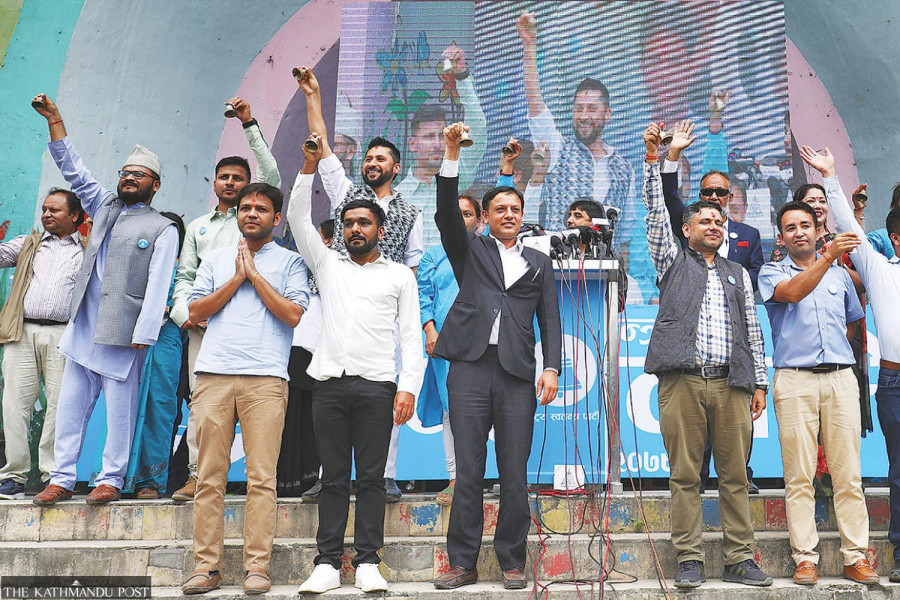Editorial
The RSP paradox
A political outfit founded on the popularity of an individual rather than an ideology is destined to fail.
That Prime Minister Pushpa Kamal Dahal’s arrogance of the “magic number of 32” would backfire was a given. With the two big parties of Parliament, the Nepali Congress and the CPN-UML, coming together to form a government, Dahal has been consigned to the periphery of Nepali politics—at least for now. There is another party that has been pushed to the corner as a result of the Congress-UML midnight matchmaking: the Rastriya Swatantra Party (RSP). Not only had the RSP taken the country by storm after clinching 21 seats in its electoral debut, but it had also quickly learnt to play the sidekick in the coalition politics where a party that came a distant third, Dahal’s Maoist Centre, took the lead role.
After a little over a hundred days in power and a few stunts and genuine attempts to change things for the better, the four ministers of the party are packing their bags. At the end, there is little for the party to show, as it remained at the eye of the storm owing to party president and home minister Rabi Lamichhane’s alleged involvement in financial fraud. It is not clear what the party gained by being in power except for notoriety. “The old and the new are all same-same” is what the party has proven, especially considering the failure of the party’s influential leaders to declare that the party was really swatantra from the private life and dealings of the president.
If the suicidal pillion ride with the Maoists and the UML that led to a dip in its public legitimacy was not enough, the party is now facing an apparent implosion, at least going by party general secretary Mukul Dhakal’s clarion calls. Dhakal is today on the verge of facing disciplinary action for spilling the party’s secrets, seemingly proving the old adage of “what goes around comes around”. Earlier, Dhakal was known to have twisted the arms of a few party colleagues when he was in the good books of the president. Now that he has fallen out with the party, he has found himself among the ranks of Ganesh Karki, a well-known dissenter who called Dhakal out for, among other things, manipulating the party’s list of proportional representation candidates.
Dhakal on Wednesday attended the RSP’s meeting wearing a black tape over his mouth, apparently to protest the party’s decision not to live-broadcast the meeting. Having been pushed to the corner by his colleagues for criticising the party in the public, Dhakal believes a public spectacle of the party’s inner workings would be the only way to salvage his position. But an earlier avatar of Dhakal himself wouldn’t agree to such over-democratisation of the party. After all, a party that is struggling to prove its relevance after just two years of existence must hide its nervousness if not secrets altogether.
Some claims Dhakal has made after his nation-wide tour, though, are noteworthy. The party’s appeal is indeed on the wane. A political outfit founded on the popularity of an individual rather than an ideology is destined to fail along with that individual, and the office bearers of the novice party would do well to heed this. Because, a section of the people still has hope in the RSP as a political alternative to the Big Three that have taken the country for a ride for decades.




 10.12°C Kathmandu
10.12°C Kathmandu













